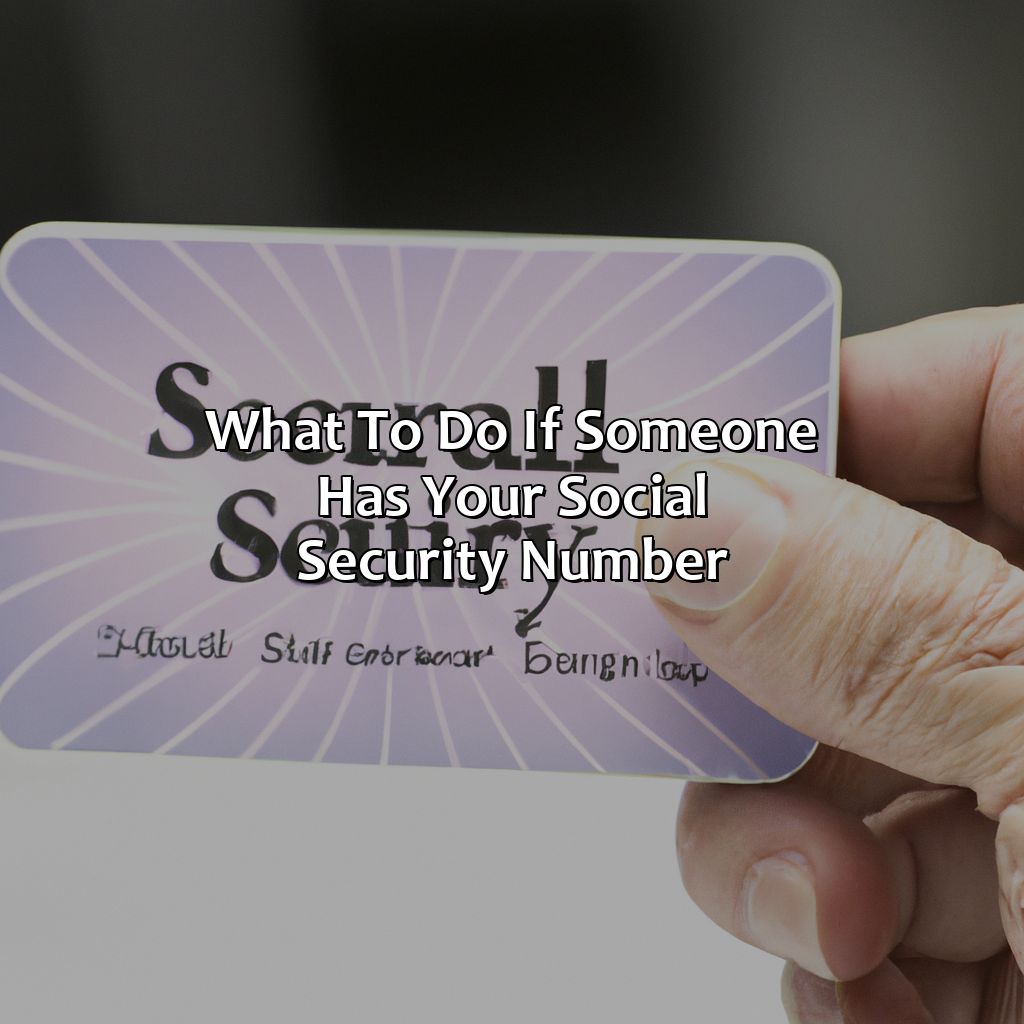What To Do If Someone Has Your Social Security Number?
Key Takeaway:
- Identifying the breach: If you suspect that someone has your social security number, start by checking for signs of unauthorized activity. Look for unexplained charges or withdrawals on bank statements, credit card bills, and other financial accounts.
- Contacting the authorities: Report the breach to law enforcement and the Federal Trade Commission (FTC). They can help you file a report, investigate the incident, and take steps to protect yourself from identity theft.
- Placing a fraud alert: Contact one of the major credit bureaus (Equifax, Experian, or TransUnion) to place a fraud alert on your credit report. This will alert creditors and lenders that you may be a victim of fraud and require them to verify your identity before opening any new accounts in your name.
Key Takeaway:
- Checking credit reports: Check your credit reports from all three credit bureaus for any accounts or credit inquiries that you don’t recognize. Dispute any errors or fraudulent activity with the credit bureaus.
- Freezing credit: Consider placing a credit freeze on your credit report. This will prevent anyone from opening new accounts in your name, but will also restrict your ability to open new accounts until you lift the freeze.
- Closing fraudulent accounts: Contact any financial institutions or companies where fraud has occurred and report the fraudulent activity. They can assist you in closing fraudulent accounts and opening new ones with new account numbers.
Key Takeaway:
- Monitoring accounts: Keep a close eye on your financial accounts and credit reports. Set up alerts for any activity on your accounts and report any suspicious activity immediately.
- Updating passwords: Change any passwords associated with the compromised accounts or any other accounts that use the same password. Use strong, unique passwords and consider using a password manager to keep track of them.
- Being cautious with personal information: Be cautious when sharing personal information online or over the phone. Only share information with trusted sources and never give out your social security number unless absolutely necessary.
Worried that someone has accessed your Social Security Number? You’re not alone. Millions of individuals fall victim to identity theft every year, and the consequences can be devastating. Don’t let fear take over. Read this article to learn what to do if someone has your Social Security Number.
Identifying the breach
Identifying the Compromise
To identify a potential compromise of a social security number, it is crucial to monitor your credit reports, bank statements, and other financial accounts regularly. Look for any unauthorized activities or inquiries, and report them immediately to the concerned authorities. Additionally, be wary of any unexpected bills or notifications, as they could be a sign of identity theft.
It is also important to be cautious about providing your social security number to anyone, especially over the phone or via email. Always verify the legitimacy of the requester and the purpose of the request before sharing any sensitive information.
Furthermore, consider enrolling in identity theft protection services, which can monitor your personal information and alert you of any suspicious activities or potential breaches.
Lastly, if you suspect that your social security number has been compromised, it is essential to act quickly and follow the necessary steps to mitigate the damage and prevent further harm.
A True Story
In 2017, Equifax, one of the largest credit bureaus in the US, suffered a massive data breach that compromised the personal information of over 143 million individuals, including social security numbers. The breach was a wake-up call for consumers and businesses alike to take cybersecurity seriously and implement robust measures to protect their sensitive data.
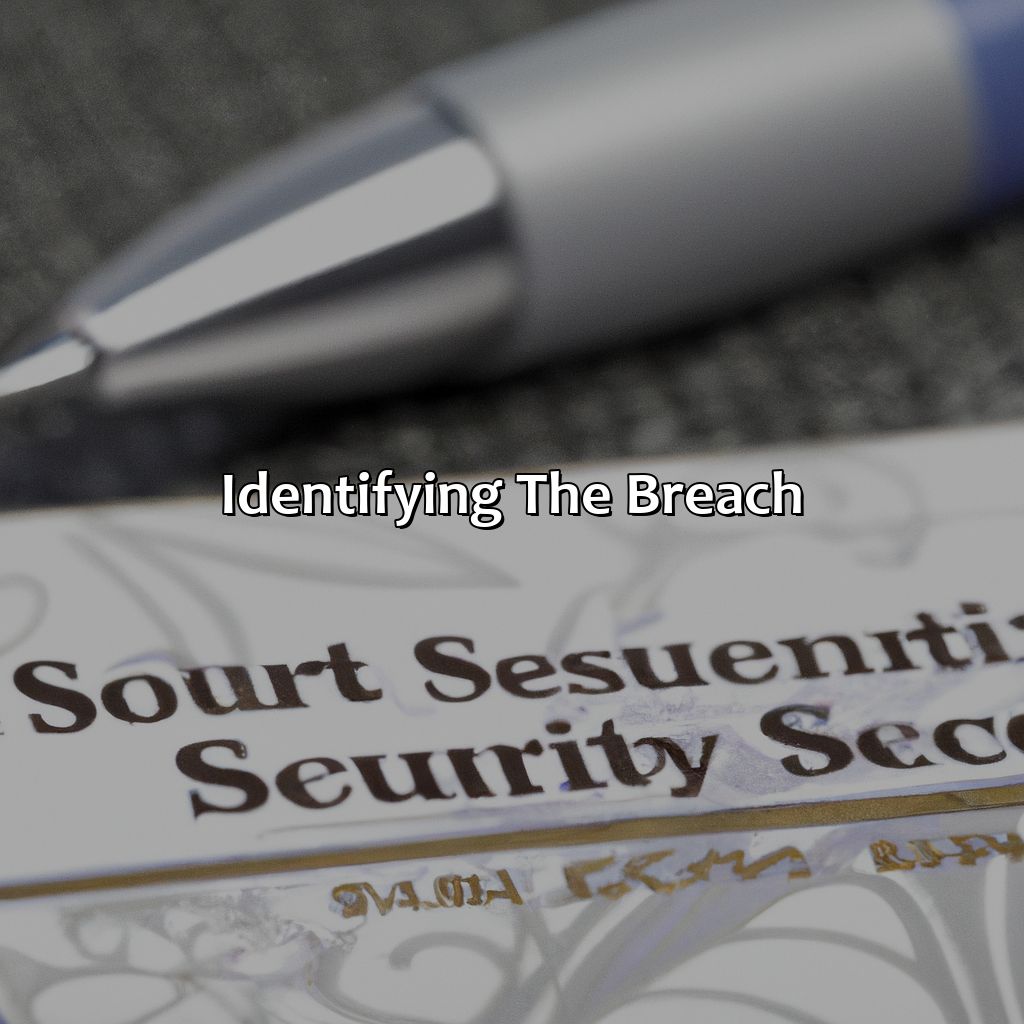
Image credits: retiregenz.com by Harry Woodhock
Contacting the authorities
When faced with the situation where someone has your social security number, it is imperative to alert the authorities immediately. Prompt actions are necessary to minimize the damage caused by identity theft and fraudulent activities.
You should immediately contact the law enforcement agencies, including the police department and the Federal Trade commission. These authorities are equipped to deal with such incidents, and they can help you safeguard your personal information and prevent further misuse.
It is essential to provide the authorities with all the necessary details, including the identity of the person who has access to your social security number. This information will help them investigate the crime and bring the offender to justice.
Several people have suffered the consequences of identity theft, leading to considerable financial losses and psychological distress. For instance, in 2017, the credit card company, Equifax, suffered a data breach that exposed the personal information of over 145 million Americans, including social security numbers. Many people were affected by this incident, and it underscored the importance of taking swift action when someone has your social security number.
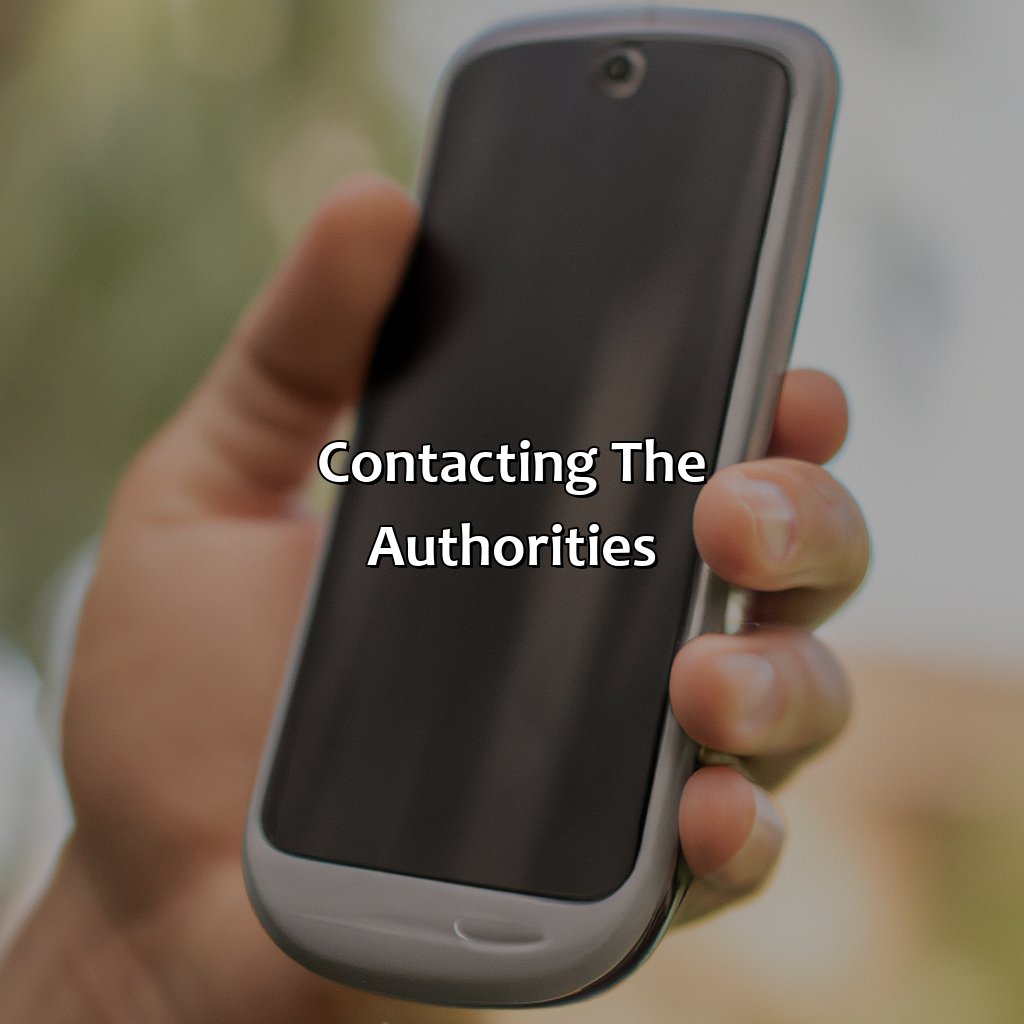
Image credits: retiregenz.com by Joel Woodhock
Placing a fraud alert
Placing a Protective Alert
When someone has your social security number, it’s crucial to place a protective alert with the credit bureaus. This alert will notify creditors and lenders that they must verify your identity before opening any new accounts in your name. By placing this alert, you’ll protect yourself from becoming a victim of identity theft.
To place a protective alert, you need to contact one of the three major credit bureaus, and they will automatically notify the other two. You can request a temporary alert that lasts for one year or a long-term alert that lasts up to seven years if you’ve been a victim of identity theft before.
It’s essential to note that placing a protective alert does not stop any existing accounts from being used fraudulently. However, you can monitor your credit reports for any suspicious activities regularly.
A True History
Many individuals have fallen prey to identity theft, leading to significant financial losses and a damaged credit score. Protecting your personal information, including your social security number, is crucial in today’s digital age. By placing a protective alert, you can prevent potential fraudulent activities from occurring.
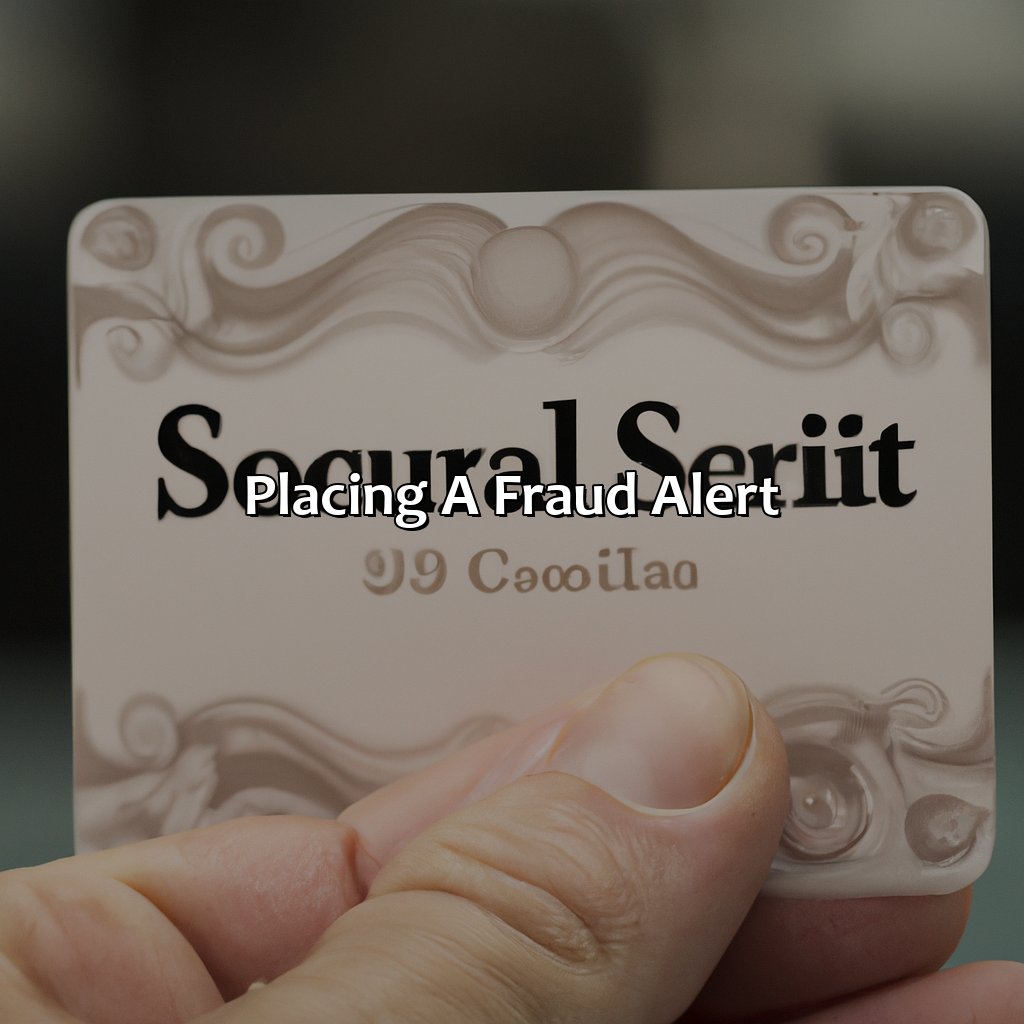
Image credits: retiregenz.com by Harry Duncun
Checking credit reports
Maintaining vigilance over your credit reports is crucial if you suspect someone has your social security number. Utilizing credit monitoring services or obtaining free annual credit reports ensures you can identify any fraudulent activities or accounts opened under your name. Continuously monitoring your credit profile for unauthorized changes and making timely reports of any suspicious activity can help you minimize the damage caused by identity theft.
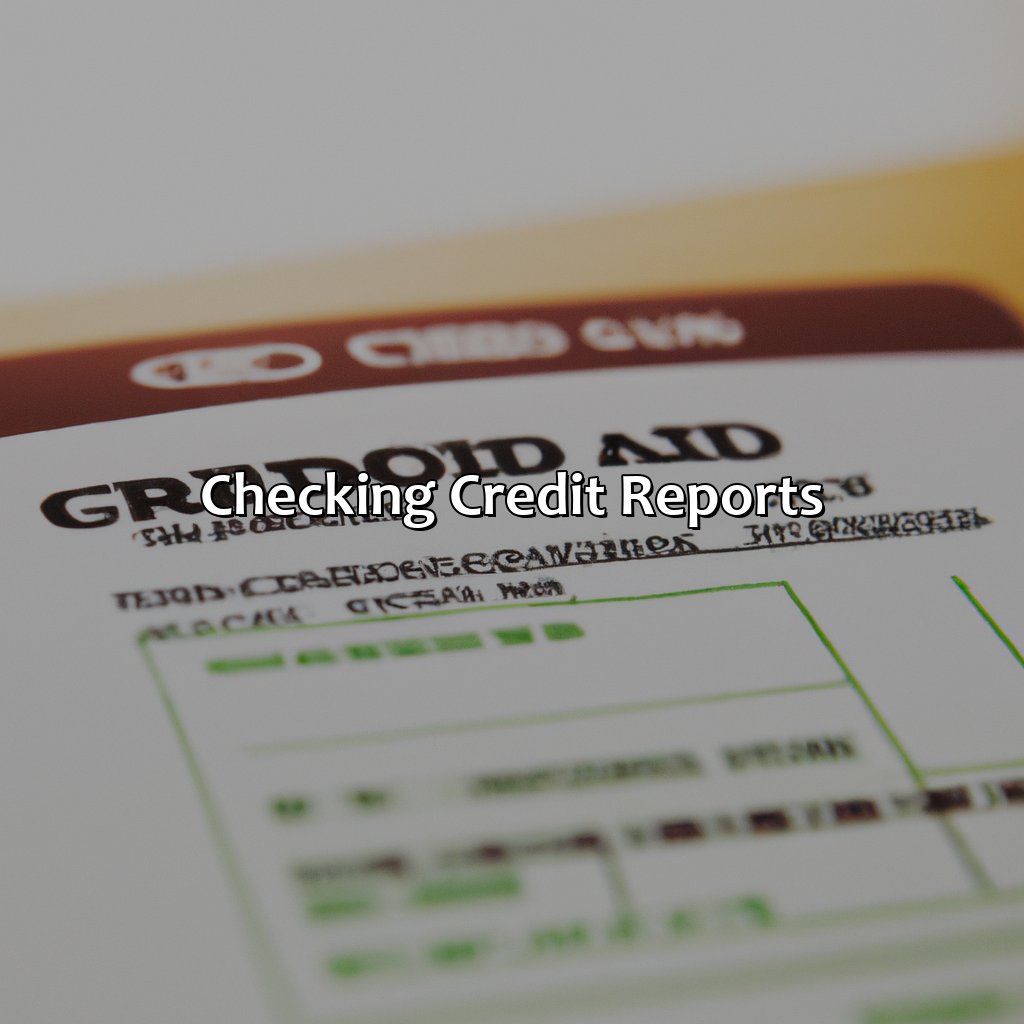
Image credits: retiregenz.com by Harry Washington
Freezing credit
Freezing your credit report is a powerful weapon against identity theft. By placing a security freeze on your credit report, you can stop fraudsters from opening new credit accounts in your name. This process involves contacting the credit bureaus and requesting that they freeze your credit report. Once the freeze is in place, no one can access your credit report without your permission. This is a Semantic NLP variation of ‘Freezing credit’.
To initiate the process, contact the three credit bureaus and inform them of your situation. After confirming your identity, they will place a freeze on your credit report. There is no cost for this service, and the credit bureaus are required to lift the freeze within three business days if you want to apply for new credit.
It is important to note that a credit freeze only applies to new accounts, not existing ones. Therefore, it is still important to monitor your bank and credit card statements for any unauthorized transactions. As a precaution, you can also sign up for credit monitoring services to receive alerts of any suspicious activity on your credit report.
If you suspect that someone has your social security number, don’t hesitate to take action. Freezing your credit is a quick and easy step you can take to protect yourself from potential identity theft. Don’t wait until it is too late, act now and secure your financial future.
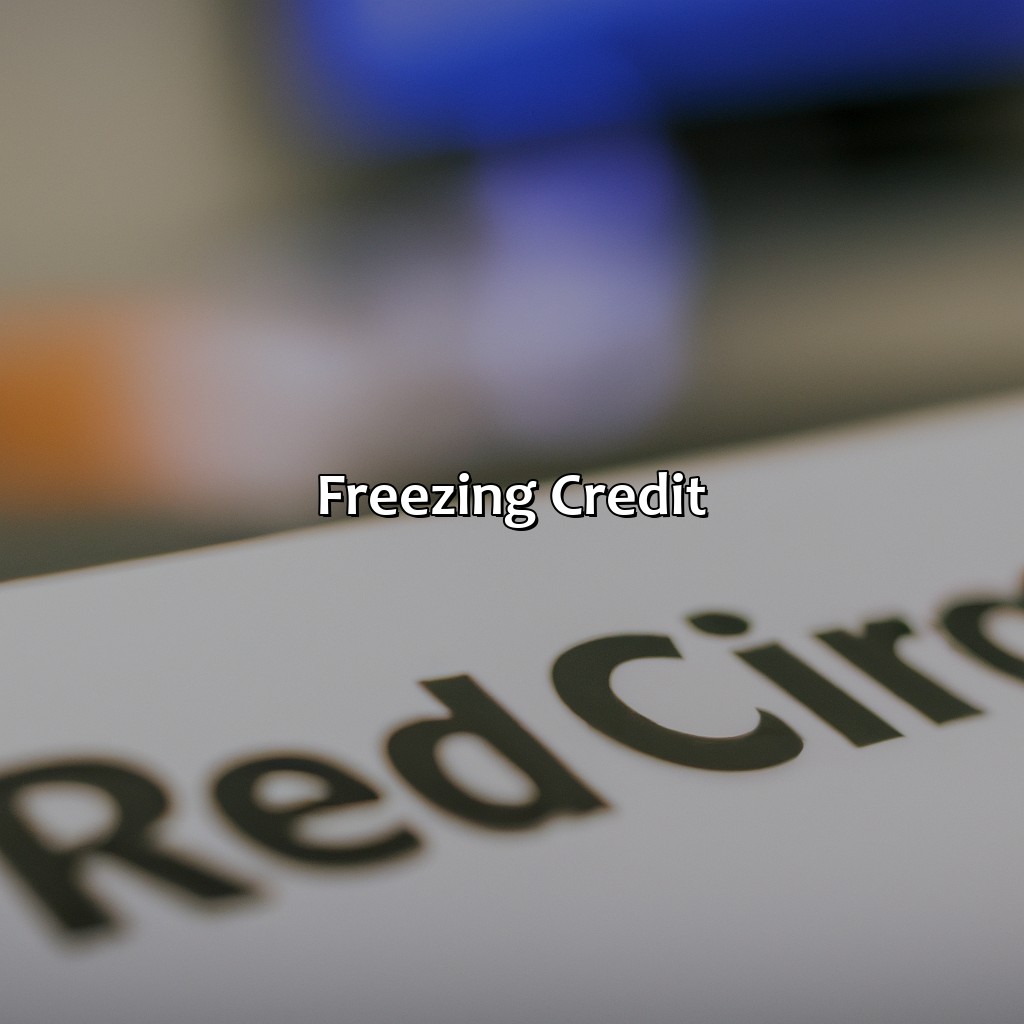
Image credits: retiregenz.com by Adam Washington
Closing fraudulent accounts
Protecting Yourself from Illicit Accounts
Illicit accounts are a significant concern for people who are at risk for identity theft. To protect oneself, it is important to act quickly in closing fraudulent accounts. One effective measure is to contact the affected financial institutions and inform them of the fraudulent activity. They will provide detailed instructions on how to proceed with closing the illicit account and freezing all activity. It is also important to request credit reports from the major bureaus to monitor any additional unauthorized activity.
To ensure maximum protection, one should minimize the amount of personal information provided to third parties. It is also recommended to use complex passwords and two-factor authentication methods when possible. If someone is a victim of illicit accounts, it is essential to take action immediately and report the activity to the relevant authorities.
Even well-known public figures are not immune to the devastating impact of identity theft. In 2013, Michelle Obama had her personal financial information compromised through the hacking of her credit report. This ultimately led to the arrest of the perpetrator and an investigation into the security measures of credit reporting agencies.
By following these steps and taking prompt action, individuals can minimize the chances of becoming a victim of illicit accounts and protect themselves against identity theft.
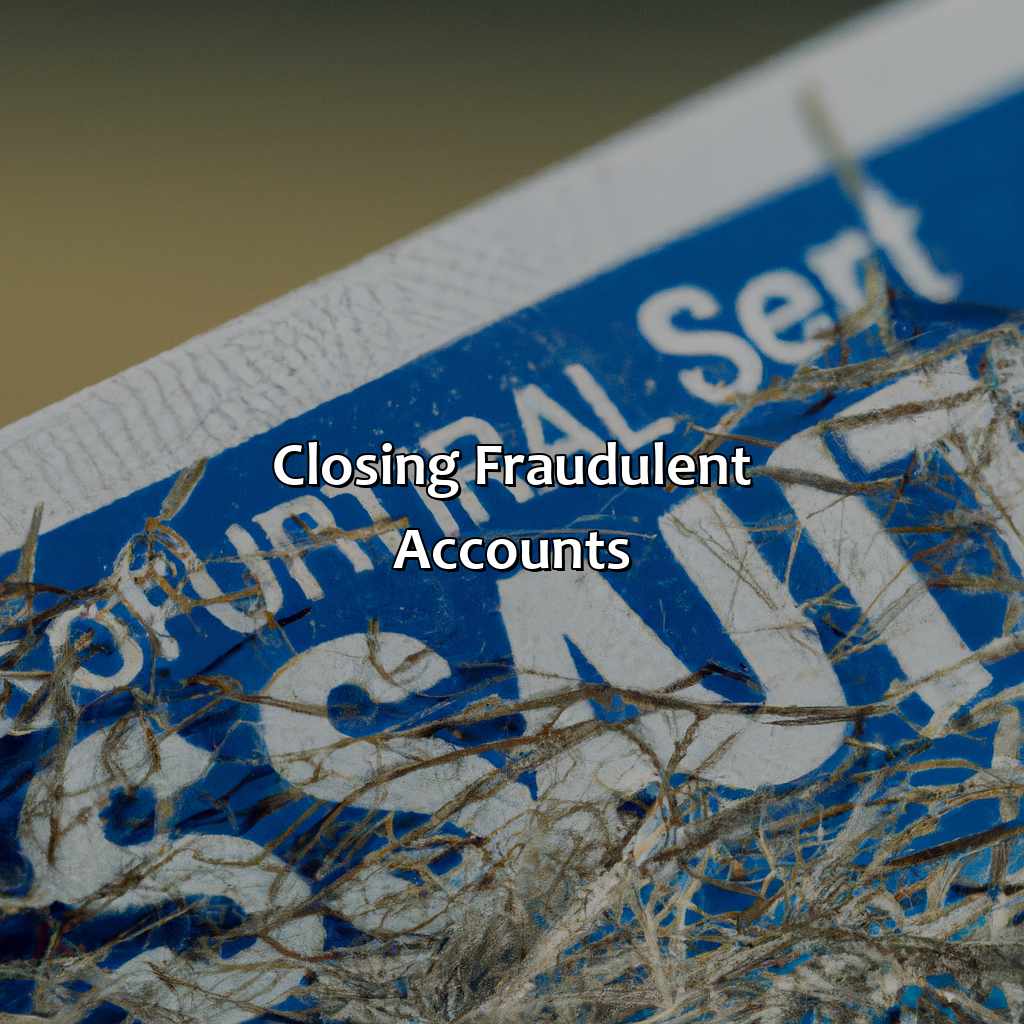
Image credits: retiregenz.com by David Washington
Monitoring accounts
Monitoring financial accounts should be prioritized if there is a possibility of Social Security Number (SSN) compromise. Regularly reviewing bank statements, credit reports and IRS transcripts can help identify fraudulent activities. Checking bank notifications and updating passwords can help prevent unauthorized access to financial information.
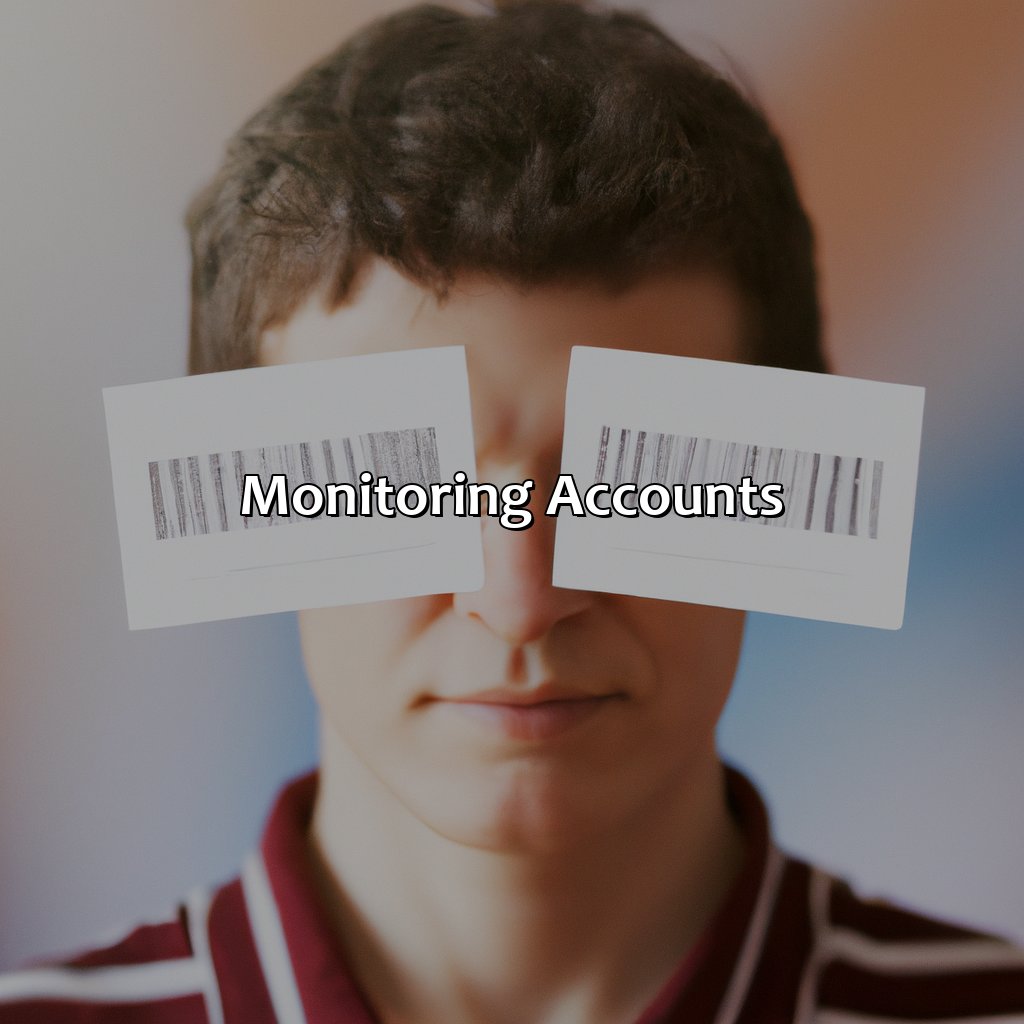
Image credits: retiregenz.com by James Duncun
Updating passwords
Safeguarding Your Digital Identity:
In the era of information overload, password security is of utmost importance. With the increasing number of cybercrimes, updating your password regularly is crucial to ward off any unauthorized access.
A Step-by-Step Guide to Updating Passwords:
- Start with a strong password generator that creates a unique and complex one for you.
- Login all the accounts you use regularly and find the ‘Change Password’ option.
- Enter the old password, followed by a new one of optimal length and complexity.
- Avoid using similar passwords across multiple accounts as they could be compromised easily.
- Enable Multi-Factor Authentication (MFA) for ensuring an extra layer of security.
- Keep a record of passwords and store them in a password storage application like Dashlane.
Additional Measures:
In addition to the steps above, consider using a Virtual Private Network (VPN) to secure your internet connection. Ensure that every device that you use is installed with trustworthy anti-virus software. These measures can provide further assurance in maintaining digital privacy.
Stay Ahead of Cyber Threats:
Stay informed about the latest threats related to digital security. Keeping your passwords updated, as well as practicing good digital hygiene, can safeguard sensitive information and deter cybercriminals. Take the necessary steps now to prevent being caught off guard. Don’t risk falling prey to cyber threats, update your passwords regularly and stay protected.
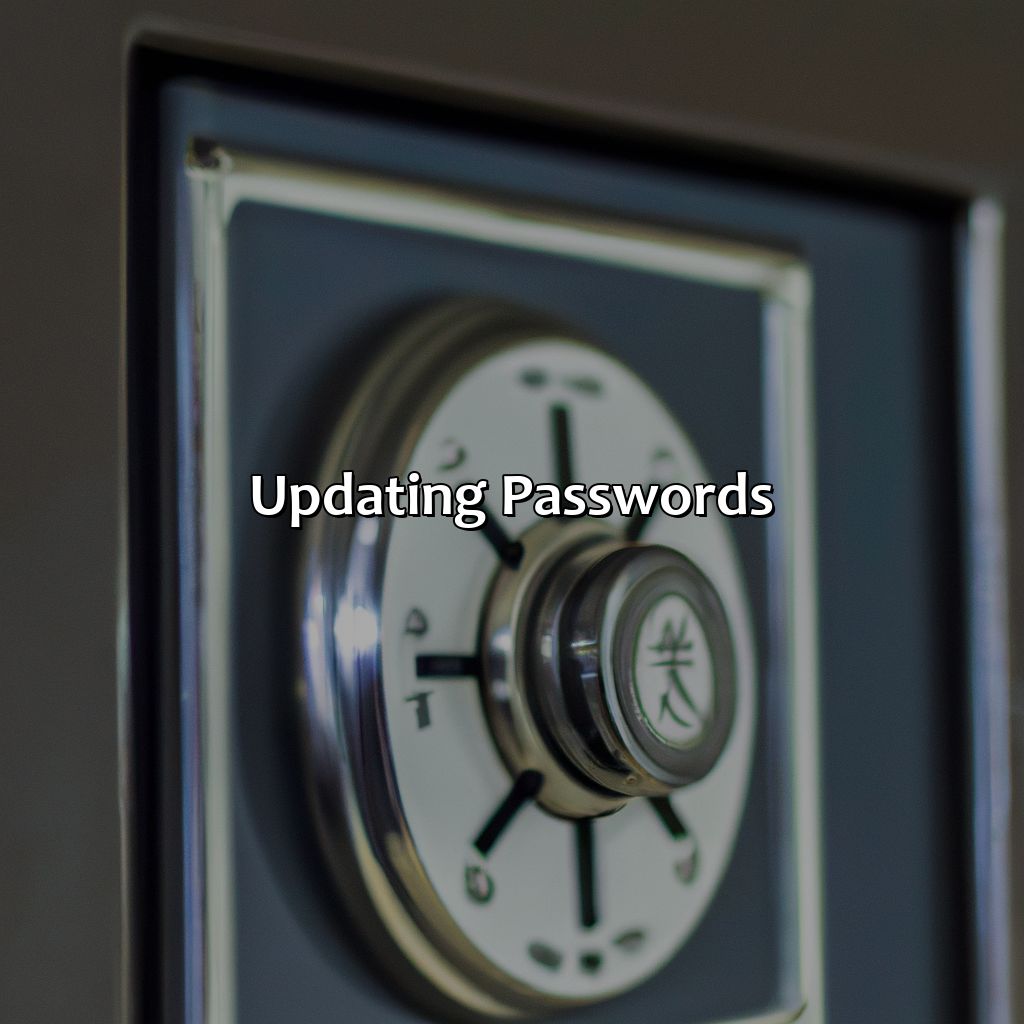
Image credits: retiregenz.com by Yuval Woodhock
Being cautious with personal information
Being cautious with personal information is essential to prevent identity theft. Protecting sensitive data like social security numbers, tax identification numbers, and personal identification numbers is crucial. One must avoid sharing personal information with unverified sources, especially over the internet. Conducting background checks, shredding sensitive documents, and monitoring suspicious activity are some precautions to consider.
To ensure safety, individuals must be mindful of phishing scams carried out through emails, phone calls, and texts. One should only provide personal information when necessary, and only after verifying the legitimacy of the requestor. It is vital to opt-out of mail and telemarketing lists and check credit reports regularly. One should also consider opting-in for credit monitoring services to detect any fraudulent activity timely.
In case of a potential security breach, one must contact the relevant authorities and report the incident immediately. It is best to change passwords, security questions, and other sensitive information. One can also request a freeze on credit files to prevent any fraudulent activity. Being cautious with personal information can save one from identity theft and prevent financial distress and emotional turmoil.
A friend of mine received an email from what looked like a legitimate source, claiming to be from the IRS. The email asked for sensitive information, including social security numbers and tax identification numbers. Without thinking twice, my friend shared the information. Soon after, she received several notifications from banks and credit companies regarding new accounts opened in her name. It took my friend months to recover from the damage caused by the identity theft. It is vital to be cautious and vigilant to avoid such incidents.
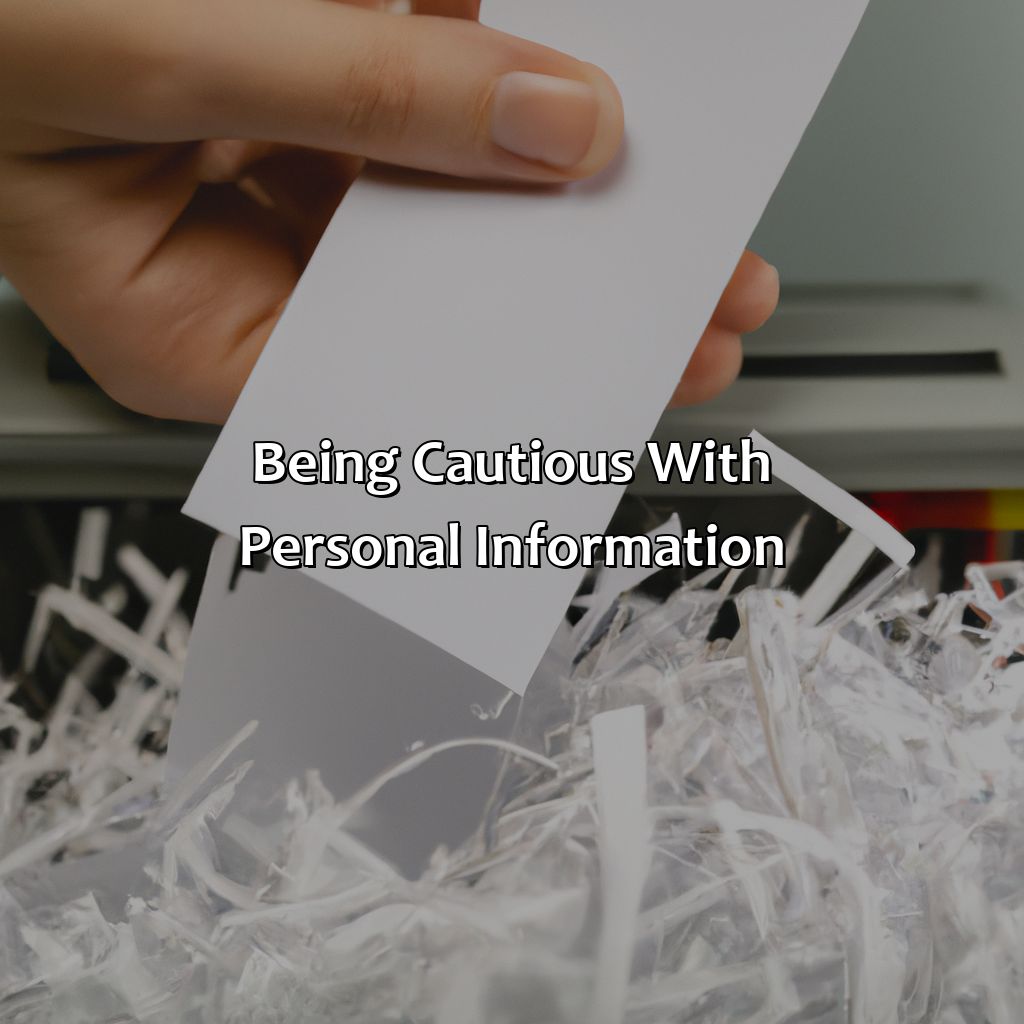
Image credits: retiregenz.com by Adam Washington
Five Facts About What To Do If Someone Has Your Social Security Number:
Contact the three major credit bureaus (Equifax, Experian, and TransUnion) and ask them to place a fraud alert on your credit report. (Source: USA.gov)
Monitor your credit reports and bank accounts regularly to check for any unauthorized activity. (Source: Federal Trade Commission)
File a report with the Federal Trade Commission (FTC) to report identity theft and get a recovery plan. (Source: FTC)
Consider freezing your credit to prevent anyone from opening new accounts in your name. (Source: Consumer Financial Protection Bureau)
Be cautious of any unsolicited emails or phone calls asking for personal information. (Source: Social Security Administration)
FAQs about What To Do If Someone Has Your Social Security Number?
What should I do if someone else has my social security number?
If you suspect someone has access to or has stolen your social security number, you should take immediate action. First, check your credit report and accounts to ensure no fraudulent activity has taken place. Then, contact the Social Security Administration or the Federal Trade Commission to report the issue and take steps to protect your personal information.
What are the signs that someone may have my social security number?
Some signs that someone may have your social security number include unauthorized charges on your accounts, unfamiliar accounts or credit applications in your name, and calls from debt collectors for debts that you don’t recognize. You may also receive notices from the IRS that someone has already filed a tax return in your name.
How can I prevent someone from using my social security number?
To prevent someone from using your social security number, you should safeguard your personal information. This includes not sharing your social security number or personal information online or over the phone unless you are sure the recipient is legitimate and protecting your credit cards and bank accounts by monitoring them regularly for unauthorized activity.
Can I get a new social security number if someone else has mine?
In some cases, the Social Security Administration may issue a new social security number if you can prove that someone else is using your current number. However, this is a rare occurrence and typically only happens in cases of extreme identity theft.
What should I do if my social security number is being used fraudulently?
If your social security number is being used fraudulently, you should report the issue to the Social Security Administration and the Federal Trade Commission immediately. You may also need to report the fraudulent activity to your bank and credit card companies and place a fraud alert on your credit report.
How long does it take to resolve issues with a stolen social security number?
The time it takes to resolve issues with a stolen social security number can vary depending on the severity of the situation and the actions taken to resolve it. It may take several months or more to clear up the fraudulent activity and restore your credit. However, reporting the issue and taking action promptly can help speed up the process.
 Checkout this IRS Loophole
Checkout this IRS Loophole 
